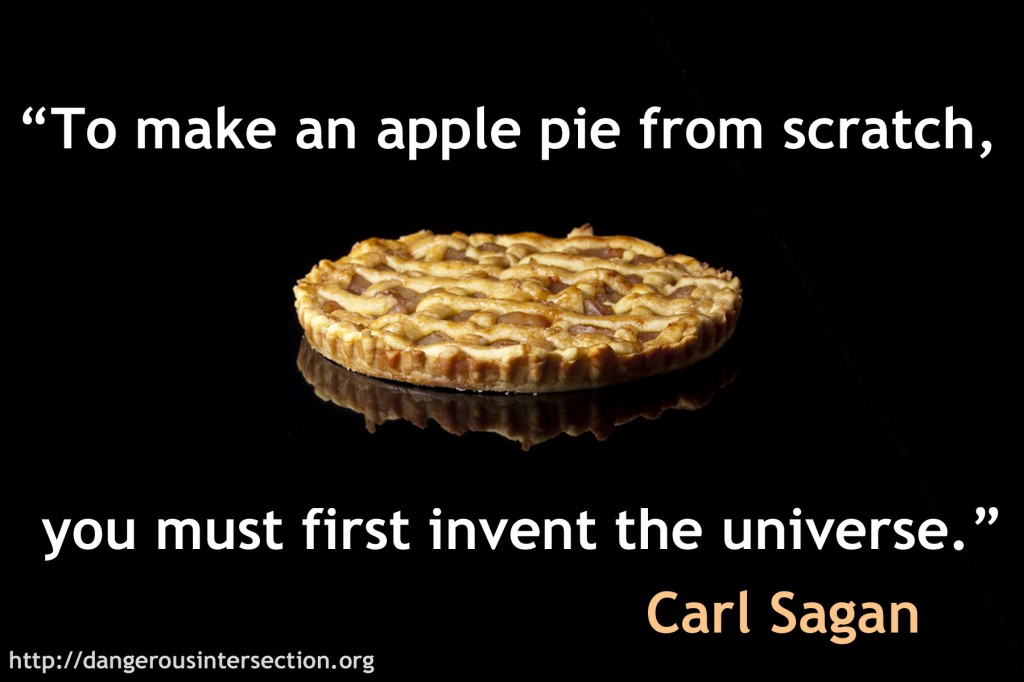Why believe in the scientific method?
Richard Dawkins succinctly explains why one should follow the scientific method.
Richard Dawkins succinctly explains why one should follow the scientific method.
I'll never think of Ockham's razor the same again, based on this article.
This past weekend, I was discussing the nature of explanations with some relatives. I argued that to explain anything completely, one would have to explain absolutely everything, given the need for context in a complete explanation and given the inter-connectedness of all that we know. Many explanations falling short of explaining everything work, at least on a local level, because on a local/pragmatic level an explanation is merely a description that makes us feel good.
Today, I came across a quote by Carl Sagan that relates to the above:

I thought I might write about something other than politics this morning, but some things are just too there to ignore. But perhaps this isn’t strictly about politics. Representative Paul Broun of Georgia recently said the following. I’m pulling the quote from news sources so I don’t get it wrong. “God’s word is true. I’ve come to understand that. All that stuff I was taught about evolution, embryology, Big Bang theory, all that is lies straight from the pit of hell. It’s lies to try to keep me and all the folks who are taught that from understanding that they need a savior. There’s a lot of scientific data that I found out as a scientist that actually show that this is really a young Earth. I believe that the Earth is about 9,000 years old. I believe that it was created in six days as we know them. That’s what the Bible says. [More . . . ]
I've previously written about the works of Paul Kurtz. I've long admired his Neo-Humanist Statement of Secular Principles. I also agree with his concerns about "fundamentalist atheists." In fact, it was his position on "fundamentalist atheism" that likely gave rose to his contentious departure from the Center for Inquiry. More recently, Kurtz has made the argument that atheists, agnostics and other disbelievers would be best served characterizing themselves as "skeptics" rather than as atheists, agnostics or non-believers.
I would like to introduce another term into the equation, a description of the religious “unbeliever” that is more appropriate. One may simply say, “I am a skeptic.” This is a classical philosophical position, yet I submit that it is still relevant today, for many people are deeply skeptical about religious claims. Skepticism is widely employed in the sciences. Skeptics doubt theories or hypotheses unless they are able to verify them on adequate evidential grounds. The same is true among skeptical inquirers into religion. The skeptic in religion is not dogmatic, nor does he or she reject religious claims a priori; here or she is simply unable to accept the case for God unless it is supported by adequate evidence.Kurtz lists additional reasons for the use of the term "skeptic."
[S]kepticism based on scientific inquiry leaves room for a naturalistic account of the universe. It can also recommend alternative secular and humanist forms of moral conduct. Accordingly, one can simply affirm, when asked if he or she believes in God, “No, I do not; I am a skeptic,” and one may add, “I believe in doing good!”